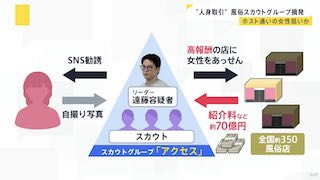Apr 13 (Nikkei) - More Japanese lawmakers and businesses are throwing their support behind shorter workweeks to give families more time to take care of children and older family members, as well as to adapt to a world where remote work is increasingly common.
The government's Council on Economic and Fiscal Policy will cover the issue in a discussion Tuesday of measures to encourage the movement of workers into higher-growth fields. Shorter weeks will give employees more time to attend school to gain new knowledge and skills, the thinking goes.
This follows a draft proposal from the ruling Liberal Democratic Party in January calling for three days off a week to be made widely available as an option for workers who want them.
These moves are particularly notable in a country with a corporate culture that has traditionally focused more on time spent at work than results achieved.
The discussion is being driven by concern over a chronically shrinking workforce. Japan's working-age population -- those aged 15 to 64 -- peaked in 1995 at about 87 million and is projected to fall to less than 70 million in 2030, making productivity-boosting measures essential to enable economic growth.
It is also a response to changes to employment brought by the coronavirus pandemic, particularly the rise in telecommuting, that allow for work to be less strictly bound to particular times and places.
The idea of a shorter workweek has gained some traction abroad. In a 2019 survey by the University of Reading, 64% of U.K. companies that had adopted a four-day workweek said their employees were more productive.
New Zealand Prime Minister Jacinda Ardern floated the idea of a four-day week last May. The local arm of consumer-goods titan Unilever there adopted such a policy on a trial basis in December, letting employees work one day less per week for a year with no changes to salary. The multinational will consider adopting the system elsewhere if productivity improves.
Some Japanese companies have already begun taking steps in this direction.
Mizuho Financial Group in December began giving employees at five group companies, including the core Mizuho Bank, the option to work three or four days a week at proportionally reduced pay. The policy, which covers about 45,000 people, aims to offer workers more flexibility to care for family members or go to graduate school, for instance.















